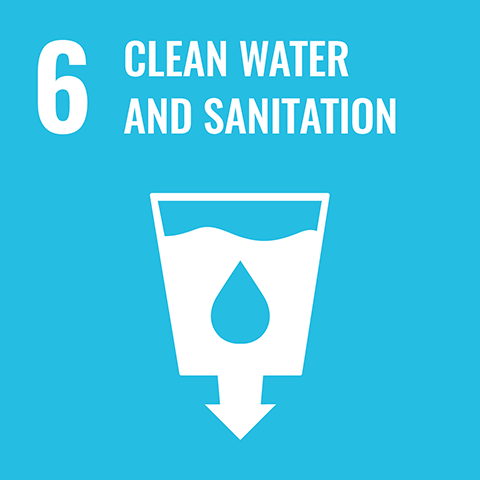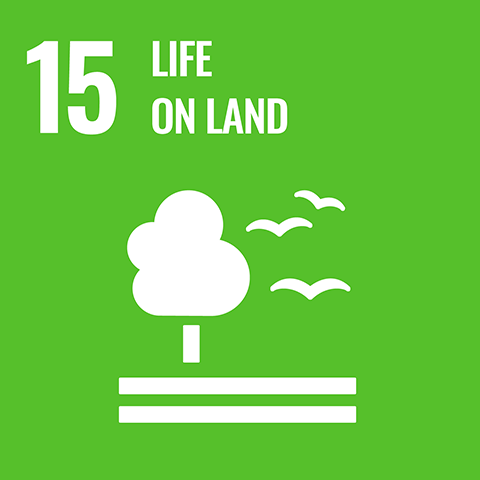Supporting water management for the future
This research supports United Nations Sustainable Development Goals:




Charles Sturt University-led teams have been researching our complex water systems, which include rivers, wetlands, and floodplains, to gain further knowledge of health indicators for ongoing management. Working with water management organisations and communities, this program is contributing to planning and decision-making for this valuable resource.
…we had to make some decisions very quickly about using environmental water … we had good data from Charles Sturt … and it allowed us to make a prudent use of public assets in a very timely way and on a large scale.
– Hilton Taylor, Assistant Secretary for Southern Water Use, Aquatic Science & Community Engagement Branch, CEWO
In Australia, our water systems support agriculture, communities and biodiversity. Water systems are complex - made up of rivers, wetlands, floodplains, and other natural and human-made components..They need to be carefully managed to ensure sustainability for the future. The Charles Sturt University team has built expertise across a wide range of ecological processes from water quality issues such as algal blooms and hypoxic black water through to the conservation and ecology of native fish, frogs and waterbirds.
A program of research at Charles Sturt University has gathered data from the Murray-Darling Basin and other water systems to help decision-makers and provide information to communities. Led by Robyn Watts and Skye Wassens, a wealth of information has been developed about water system health, including the effects of management interventions and environmental events.
By providing reliable, independent information, this program of research has contributed to water management planning, empowered communities to participate in decision-making, and been part of efforts to secure vulnerable aquatic species. Adaptive management of water has facilitated better and more timely decisions on water flows.
…ongoing monitoring is giving us information so we're making decisions about where or how water flows across this landscape.
– Roseanne Farrant, Deniliquin landholder
For more than 20 years, this program of research at Charles Sturt University has been developing knowledge of the Murray-Darling Basin and other water systems. Led by Professor Robyn Watts and Dr Skye Wassens, it brings together a large team of experts across multiple research projects from Charles Sturt University and other organisations. Over an extended period, the team has built expertise in the ecosystem and how it responds to different conditions, including droughts, floods, algal blooms and blackwater.
The current focus of this research program is the Long Term Intervention Monitoring (LTIM) Project. Charles Sturt University-led teams are monitoring water system health indicators at seven sites in the Edward-Wakool system and Murrumbidgee over five years to evaluate Commonwealth environmental watering decisions.
Differences between sites receiving and sites not receiving environmental water are being observed to collect data and build a model which can be used to predict the effects of different watering conditions. The Commonwealth Environmental Water Office (CEWO) will use results to ensure they are able to deliver on objectives of the Murray-Darling Basin Authority’s Environmental Watering Plan.
CSU-led teams have been researching our complex water systems, which include rivers, wetlands, and floodplains, to gain further knowledge of health indicators for ongoing management. Working with water management organisations and communities, this program is contributing to planning and decision-making for this valuable resource.
The LTIM project will continue until 2019. The program of research continues to adapt and evolve to address issues for different stakeholder groups. The project has recently incorporated social research looking at cultural water, culturally significant plants and communication with Traditional Owner groups.
Professor Robyn Watts conducts research on the ecology, management and restoration of aquatic ecosystems. Her research has helped improve the management and restoration of regulated river systems.
Dr Skye Wassens specialises in the ecology and conservation of wetland-dependant amphibians. Skye's research has led the way for the inclusion of amphibians into environmental flooding programs throughout the Murray-Darling Basin.
The main project of this program, the Long-Term Intervention Monitoring Project is funded by the Commonwealth Environmental Water Office (CEWO), with in-kind and/or cash contributions from NSW DPI Fisheries and the NSW Office of Environment and Heritage (OEH), and other organisations. Many collaborators have been part of this research program through various research projects.
This research program contributes to sustainable solutions for water resources, while enhancing the biodiversity of our environment and strengthening our ecosystems.